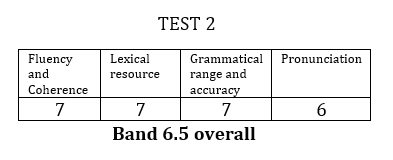This is a controversial topic so please put your comments/thoughts below.
There is always a lot of talk about IELTS and whether you will get higher marks if you do your exam in your country or in an English-speaking country. Just to make this clear, this is not the case with IELTS writing. Your writing is probably not marked in the country where you do the exam and it is scanned and sent to examiners in other countries so it makes no difference where you do IELTS in terms of writing. However, in terms of your speaking exam, we asked 3 IELTS speaking examiners what they thought.
Does it make a difference where you do your speaking exam?
Examiner 1 from the UK and examines in London.
“It shouldn’t. I examine people from all over the world, Iran, China, Brazil etc and mark them all to the same criteria. There are certain nationalities that really struggle with pronunciation like Japanese and Chinese students and it can be difficult to understand what they say but this is also connected to their level of English. I mean, Band 8.0 candidates are Band 8.0 candidates and they can talk about pretty much anything and they would get Band 8.0 anywhere in the world. With lower-level candidates (Band 5/6) where accent is a real problem, maybe doing it in your own country where the examiner lives in your country will give you an advantage, but only in terms of the pronunciation criteria.”
Examiner 2 from the UK and examines in Rome.
“I would say so, yes. I came to Rome from the UK and had been examining in the UK for 5 years beforehand. The first few sessions of examining in Italy were difficult because I found it very difficult to understand what the Italian candidates were saying and this definitely affected their pronunciation score. After a few months of living here though, my ear adjusted and I can understand pretty much everything the candidates say. An examiner coming from the UK, for example, would probably struggle and give a lower pronunciation score for the first week months.”
Examiner 3 from the UK and examines in Birmingham
“Yes, without doubt. I examined for a few years in China and the average IELTS score there is low; Band 5 – 6. It took me a long time to get used to the Chinese accent and I probably marked candidates lower for their pronunciation at the start of my time there compared to after living there for a while.”
Conclusions
IELTS speaking examiners have to go through recertification where they listen to interviews, assess them and are then checked by a senior examiner. The point of this is to expose them to different accents to make sure they are assessing candidates accurately. However, as you can see, pronunciation is a factor and the three examiners here think that it affects your score. It could be the difference between scoring 7.0 and 6.5


If you would like to do a full speaking exam online with an IELTS examiner and receive a report like this so you know exactly what you need to do to get higher marks, you can order one here.